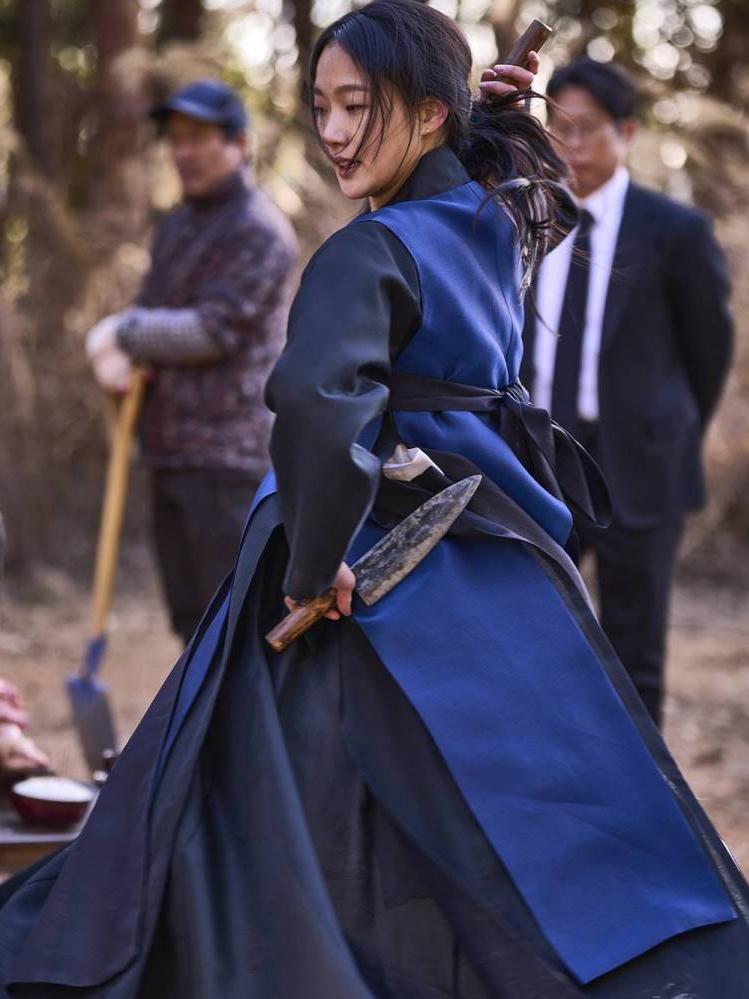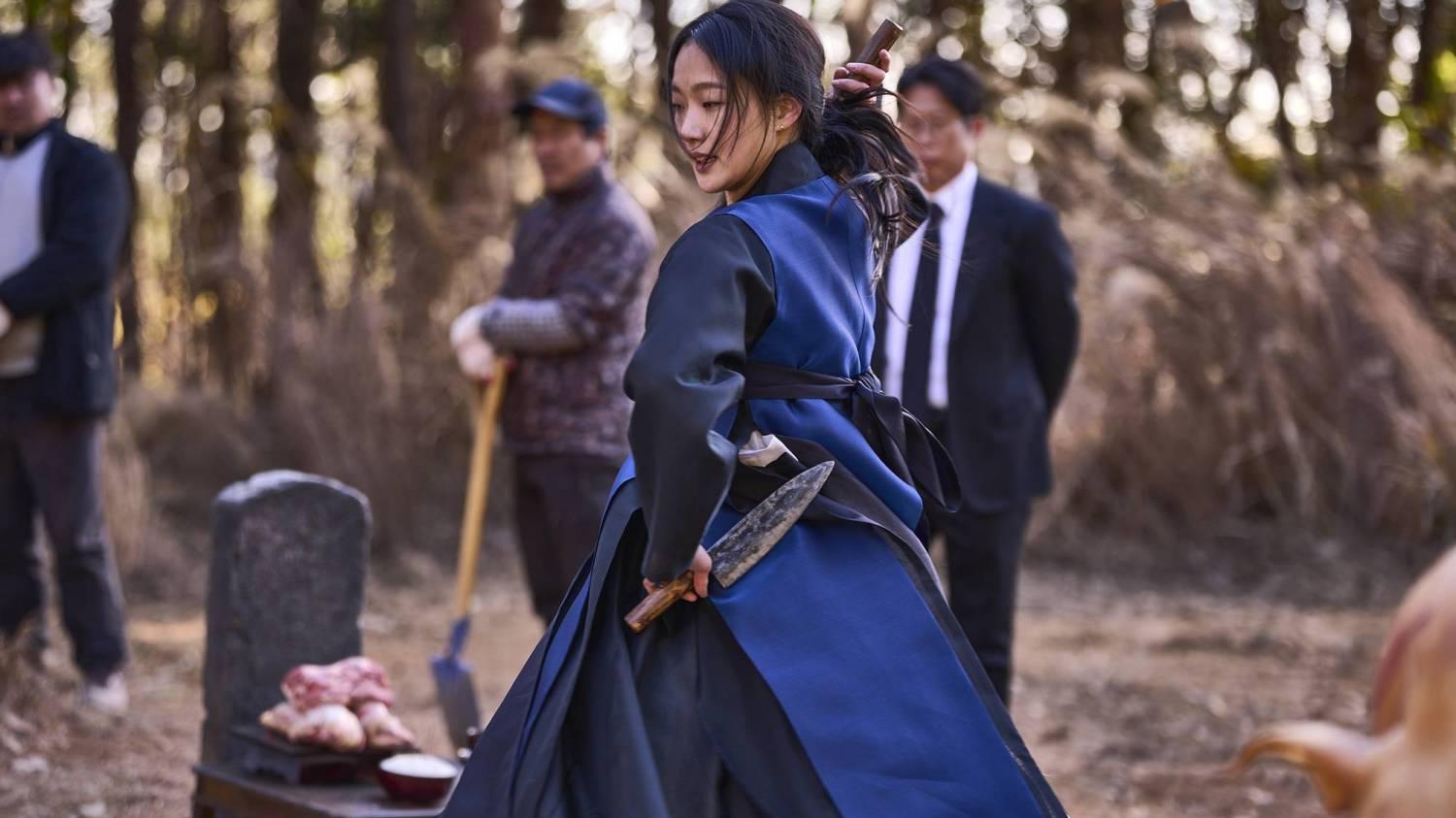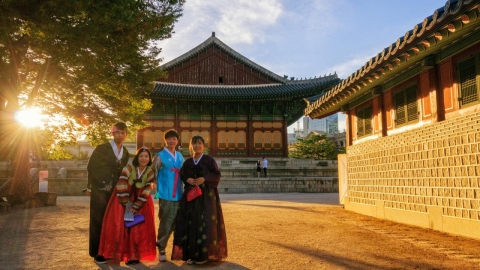Director Jang Jae Hyun, the "wizard" of Korean supernatural films, has returned with his new work, "Exhuma - The Exhumation of the Demonic Tomb." This time, he continues to take audiences on an adventure into the mysterious spiritual world with unique magical rituals and folk beliefs of Korea.
"Exhuma" is the story of a Korean family living in America who experience mysterious phenomena after their son's death. They are forced to seek the help of two young shamans to unravel the mystery and break the curse.
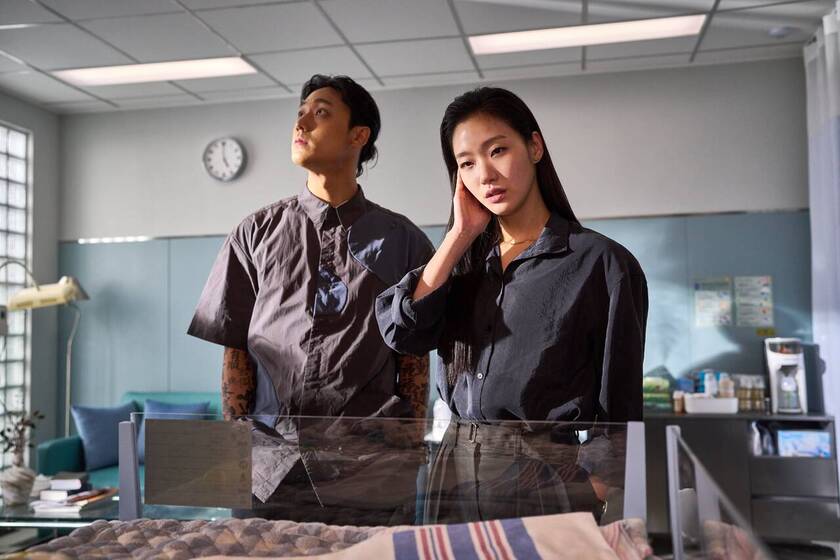
In Exhuma, two young mages travel to America to unravel a mystery and break a curse.
The film is a fascinating exploration of Korean shamanic culture and folk beliefs. Viewers will witness impressive exorcism rituals, intriguing mystical stories, and traditional cultural values preserved through generations.
“Exhuma” is not just a movie, but a unique cultural experience. The film helps viewers understand more about the spiritual and religious aspects of Korea, while also inspiring a passion for exploring different cultures.

Exhuma is a fascinating journey of discovery into Korean shamanic culture and folk beliefs.
A unique blend of horror and history.
The horror film "Exhuma" is a captivating journey into Korean history and spirituality. Based on real historical events, the film takes viewers on a thrilling journey filled with mysteries and profound messages.
Instead of following the conventional logic of the supernatural horror genre, "Exhuma" uses a dramatic structure with gradually escalating conflicts. The deeper one delves into the mystery, the more secrets are revealed, keeping viewers curious and captivated.
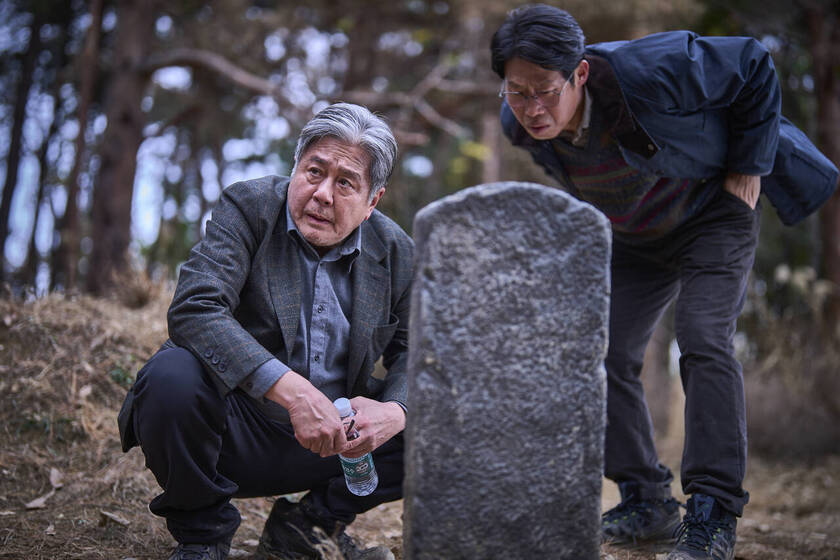
Exhuma employs the structure of drama with gradually escalating conflicts.
Set in modern-day South Korea, "Exhuma" is interwoven with memories of the past, particularly the Korean War-Japan period. Images of the brutal war, the oppression of the Japanese militarists, and the fighting spirit of the Korean people are vividly recreated through the film.
In the movies, the characters' names are also taken from the names of independence activists who fought against Japan. Even license plates are named after important dates in Korea, such as Independence Day on March 1st (license plate 0301) and Liberation Day on August 15th (license plate 0815)...
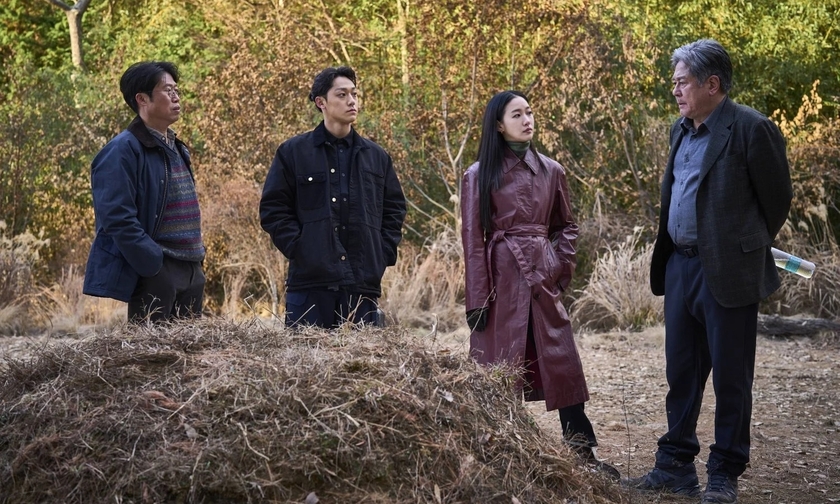
Exhuma is constantly interwoven with memories of the past, particularly the period of the Korean-Japanese War.
In the film, Gisune, a Japanese Onmyoji (exorcist) and Buddhist monk, plays a crucial role in "Exhuma." He is the one who buried the iron stake under Park Ji Young's grandfather's grave. The name Gisune means fox in Japanese. The image of a fox also appears repeatedly in many scenes of the film as an ominous sign of misfortune. The line "the fox bites off the tiger's waist" is also mentioned many times, further emphasizing the mystery and horror of the story.
“Exhuma” is not just a story about the past. It is also a call to eradicate the remnants of Japanese colonialism that still persist in modern Korean society. Through the excavation of the tomb of a pro-Japanese official, the film aims to eliminate the negative influences of colonial ideology and awaken national consciousness in the hearts of the Korean people.
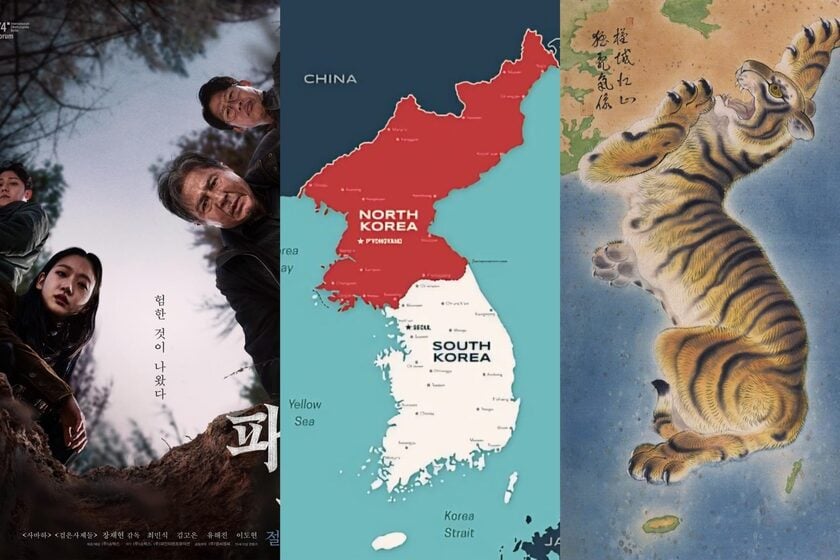
The meaning of the line "the fox bites the tiger's waist" is evident right from the Exhuma poster.
Exploring folk religion through the lens of horror.
"Exhuma" follows a four-person "grave-digging" team, including feng shui master Kim Sang Deok (Choi Min Sik), funeral attendant Yeong Geun (Yoo Hae Jin), and two exorcists Hwa Rim (Kim Go Eun) and Yoon Bong Gil (Lee Do Hyun), on a mission to relocate the tomb of a wealthy family. The four characters represent four different aspects of the Korean spiritual world. They are wise individuals who guide the audience in exploring the mysteries and hidden corners of Korean spiritual life.
A geomancer is someone who possesses knowledge of geography and energy, capable of seeing things that ordinary people cannot. In "Exhuma," the geomancer plays a crucial role in locating the tomb and deciphering the mysteries surrounding it.
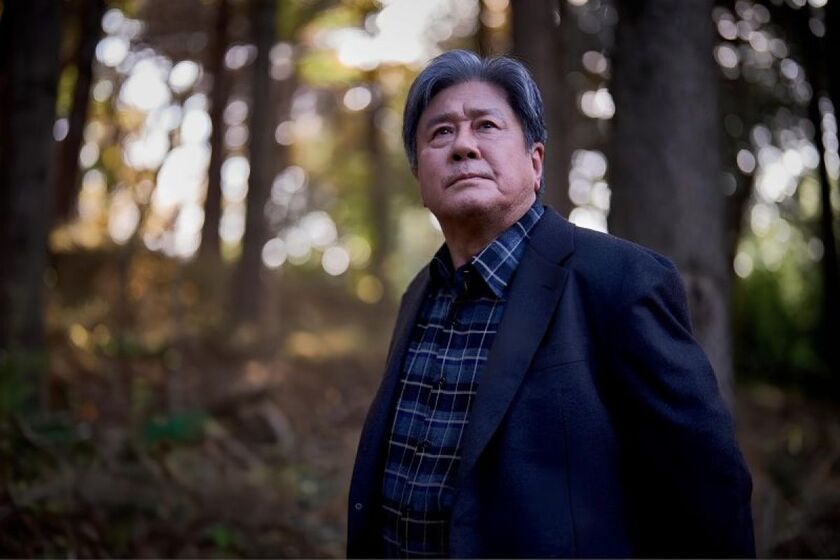
In "Exhuma," the geomancer plays a crucial role in locating the tomb and deciphering the mysteries surrounding it.
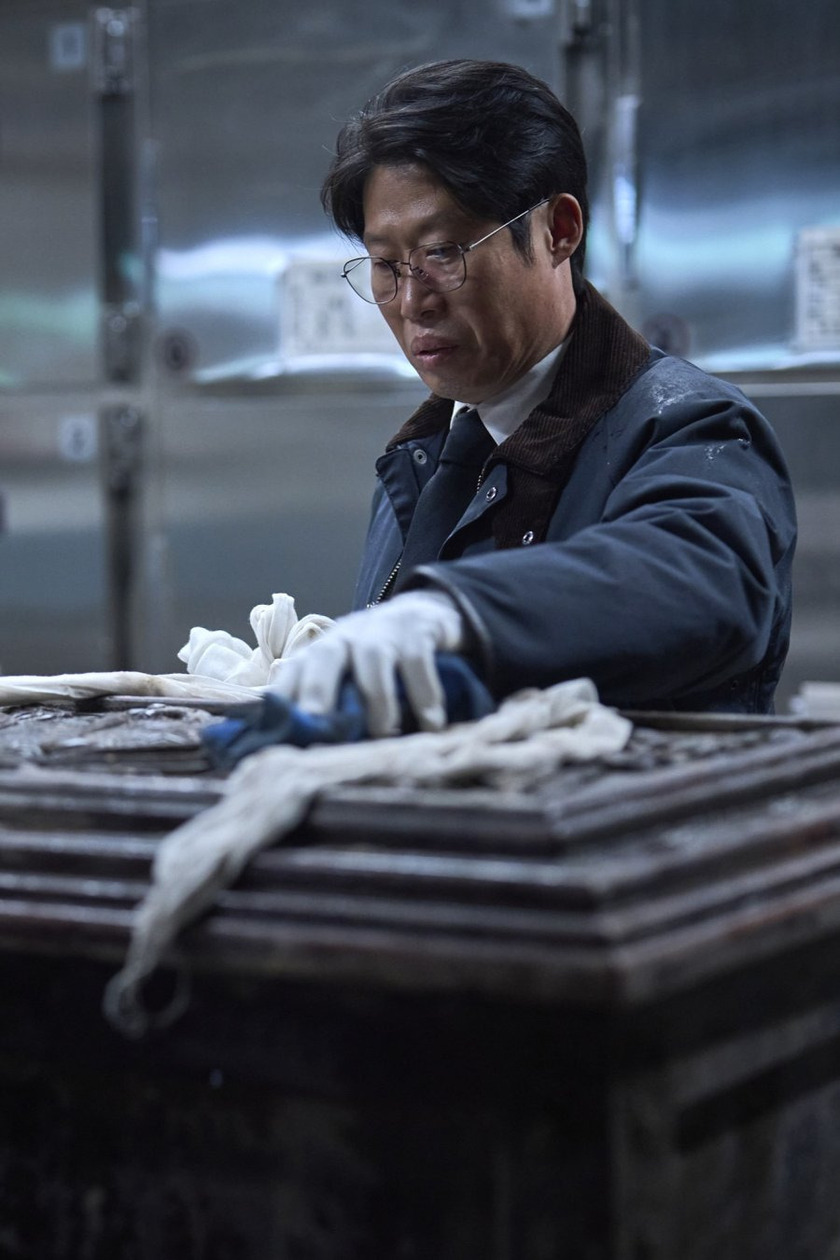
Those who perform funeral rites in the Christian faith represent belief in God and salvation.
The Christian funeral officiant represents faith in God and salvation. This figure offers a religious perspective on death and the afterlife.
These two young shamans are the embodiment of Shamanism, an ancient Korean belief system. They use magic and rituals to communicate with spirits and resolve spiritual issues.
The monk appears briefly but plays a crucial role in unraveling the mystery of the story. He represents Buddhism, a major religion in Korea, with its teachings on reincarnation and karma.

The two young shamans in Exhuma are the embodiment of Shamanism, an ancient Korean belief system.
These four characters together create a multifaceted picture of the Korean spiritual world. They guide the audience through the delicate lines between life and death, between science and superstition, between belief and doubt.
Furthermore, the film takes viewers into the mystical world of Shamanism, where traditional rituals and spiritual beliefs are vividly portrayed. "Exhuma" dedicated considerable effort to depicting the surreal aspects of Korean Shamanism. Traditional digging rituals, spirit appeasement, and the way geomancers taste the earth and recite prayers are all recreated authentically and in detail.

Exhuma takes viewers into the mystical world of Shamanism.
The film's atmosphere is also built in a chilling and mysterious way. Gloomy sounds, dim lighting, and ghostly imagery contribute to a truly haunting cinematic experience.
“Exhuma” boasts a plot with many overlapping elements. Historical anecdotes, Buddhist symbolism, and animism are skillfully interwoven to create a modern fantasy world with a strong Eastern flavor.
The film also touches upon the concepts of life and death, feng shui elements, and modern society's skepticism towards supernatural forces. Through these elements, "Exhuma" delivers profound messages about Korean culture and spirituality to viewers.
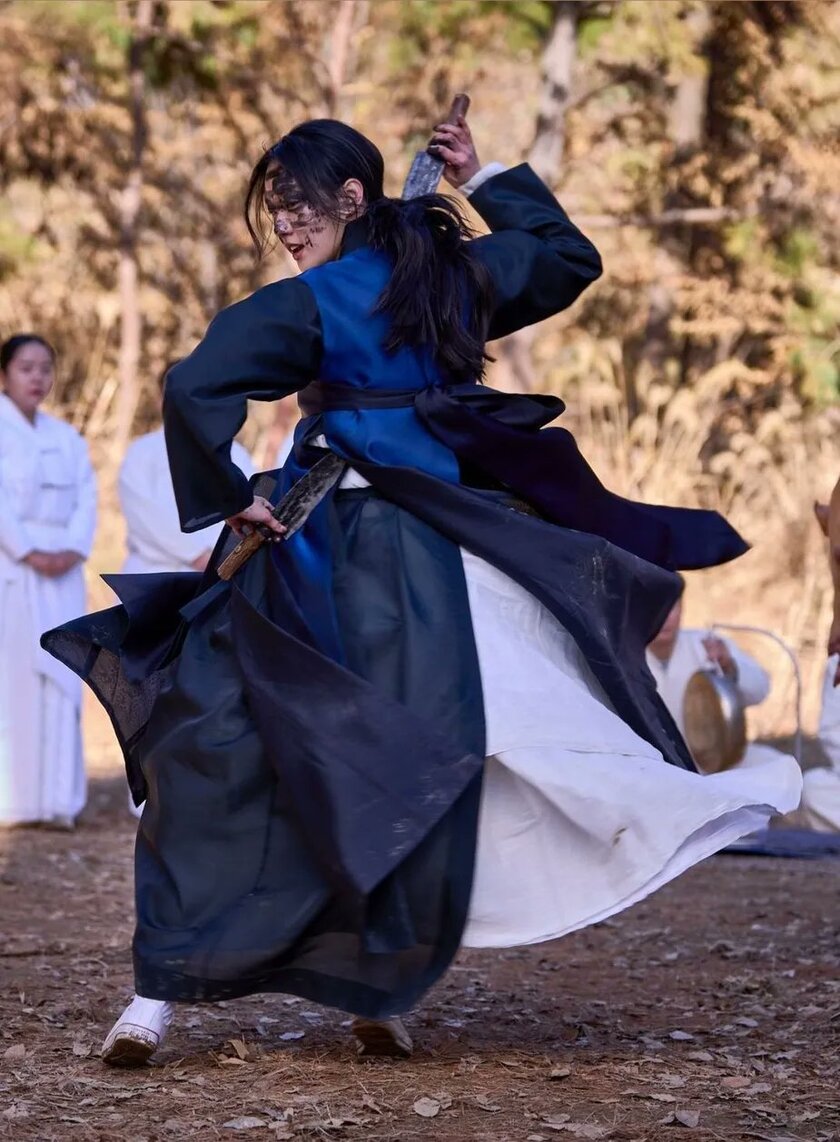

 VI
VI EN
EN



